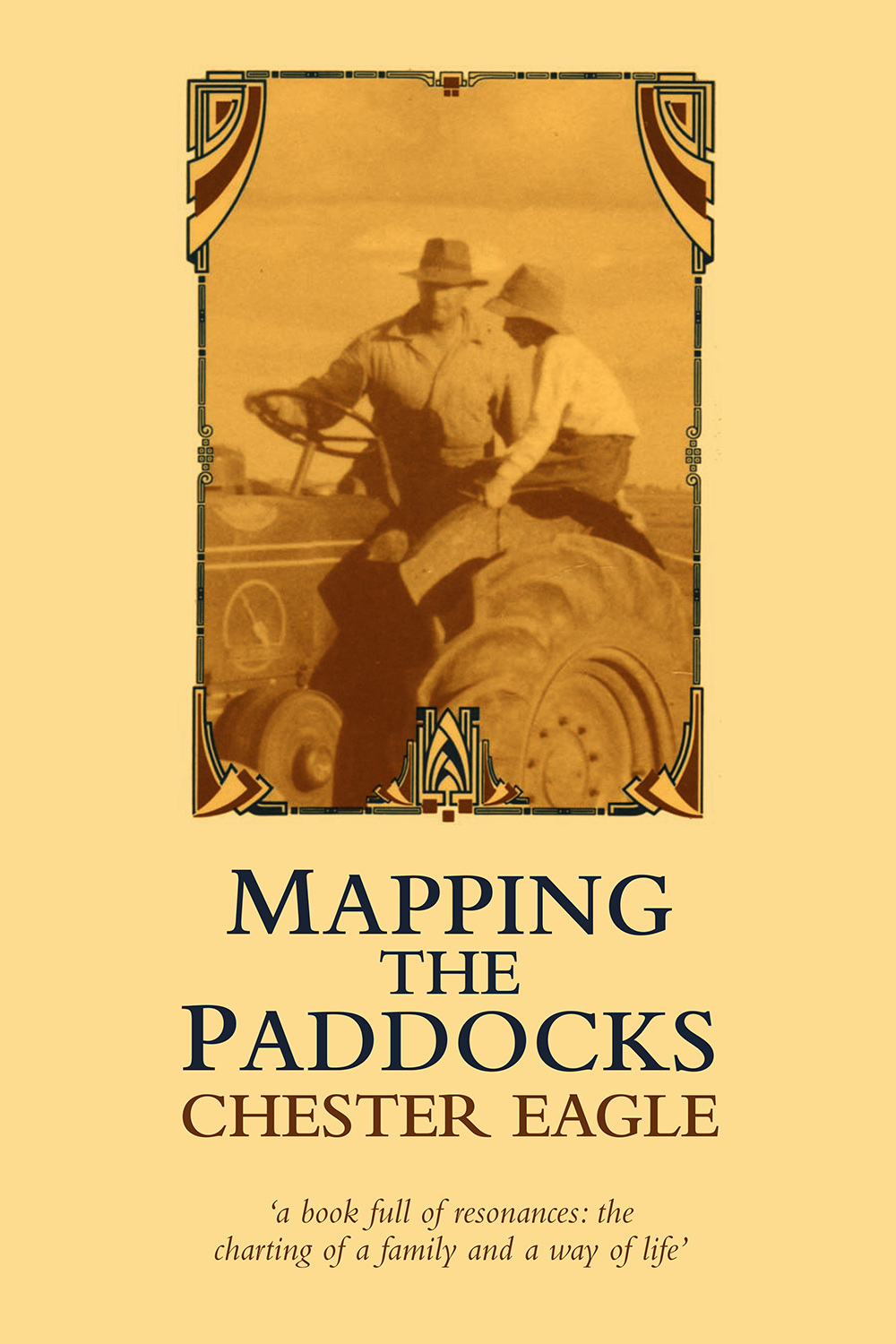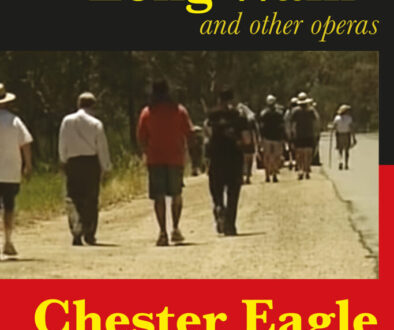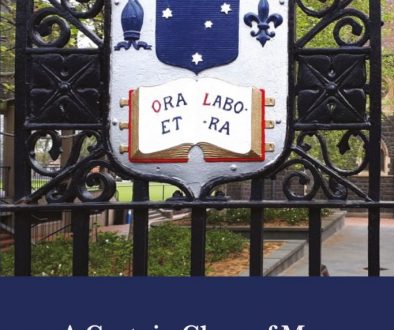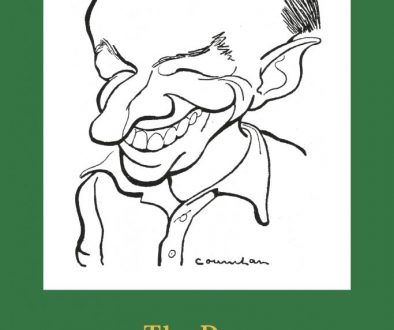Mapping The Paddocks

‘If, searching for an answer, I parade before me the people who inhabited my childhood, I hear their voices more clearly than I see their bodies. Nor do I see their clothes, apart from a few scraps of memory attached to people – the clomp of Father’s gumboots; the shiny back of Arthur Coulter’s vest; the round, priest-like hat of Pud Marantelli, driving his gig to Finley: as we approach him in our car we recognize him because his heavy frame slumps on the side of the vehicle where the springs have weakened so that he, hat and the arm he flings along the back of the seat are forever at angles to each other. We usually say, passing him, that we pity his horse.’
Three miles as the crow flies from Finley, thirty-four miles from Deniliquin in New South Wales, stretched the avenue of peppertrees leading to the farm on the plain where Chester Eagle grew up in the 1940s.
This is a book full of resonances: the charting of a family and a way of life which is at once uniquely the boy’s and as familiar to all of us as the fact of Hiroshima and the mythical figure of Bradman astride the land.
Written by Chester Eagle
Edited by Hilary McPhee
Designed by Diana Gribble
First published in 1985 by McPhee Gribble
5,000 copies printed
Reprinted 1986 (quantity unknown)
Circa 47,000 words
Electronic publication by Trojan Press (2006)
The writing of this book:
I had been working for over a decade in the northern suburbs of Melbourne. As with Bairnsdale, my previous teaching appointment, I was at first appalled by my situation, then became sympathetic. Preston was inhabited by Italians, Greeks, Maltese, others from the early waves of migration, and of course quite a few old-style Aussies who hadn’t moved into Carlton, Collingwood or Fitzroy, or out to the new suburbs to the north. The sons and daughters of the newer settlers had aspirations to tertiary study – upward mobility – which it was the job of me and my colleagues to assist. We did, willingly. It was a time and an activity of which I feel rather proud. Quite a bit of good was done. A side effect on me, however, was to make me realise that the world had changed and my assumptions about it were getting out of date. I had been brought up at a time when people who worked the land felt that they were central to Australia’s traditions, and its economy. Not any more. I had always thought that my family’s experience of the world was central to Australian life. Not any more. The country was changing, I was close to the centre of that change, and the ways of the Eagle family and the many thousands who’d been like us, were fading into history. I decided I’d better get them written down.
There was another influence, closer to home. I had a daughter and a son and when they got into bed at night their father liked to sit with them, or lie on their bed for a while, getting close to them, hearing about what they were thinking, and so on. They often asked me to talk about my own childhood. ‘Tell us about the farm!’ All those things that had been so natural, so everyday, for me, were exciting, faraway, for them. So I told them about the farm, over many, many nights. Our chooks, our dogs, our cows. Most of what I told them is in Mapping the paddocks. It was an easy book to write. As I like to say, and believe, it wrote itself. To give it shape, I kept in mind the photo of Don Bradman that had rested on our mantel, up in New South Wales. The Don! I am not, today, a lover of the way the media create sporting gods for the public’s adoration, but I cannot get around the prodigious figure of the Don, who soared through the skies of Australian life for the years in which he played the nation’s game: national because it was the way we represented ourselves vis-à-vis the British, the Poms, the bastards, the people who ruled their empire from the remote and wealthy London.
Australia was far away but was proving, via its cricketers, that it too was marvellous. This Australia, the one that I had grown up in, and my mother, and my father too, was vanishing, and my children wanted to hear about it, to put it down as a sub-stratum for their minds as they built their understandings of the world they were entering.
I had it in mind, as the book began to get itself onto paper, that it would have two parts, a light and a dark; the first would be about our farm in New South Wales, the second about Melbourne Grammar, the school my parents sent me to at about the age of twelve. One book was my plan, but as I keep having to say, books have minds of their own, and the two ideas divided. I’ll say more about this when I get on to Play together, dark blue twenty, the book that came next.
I have already referred to the way in which the job I was doing at the time I was conceiving this book added an awareness of something special to the things I was recalling. We develop a sense of the world when we’re young: now, growing old, I realise how partial, how shaky, that apparently certain sense of the world really is. We believe, when we’re young, because we have to believe, and if nothing shakes those beliefs then we have a fair chance of feeling secure, and, further, if we feel secure there’s a fair chance we will be secure. This is odd. Looking at our origins is something we need to do in order to get some understanding of ourselves. I was lucky. My origins were almost totally positive, despite the great depression affecting our land. Nothing broke my parents’ pride. They lived simply and didn’t compromise themselves. My father, like most Australians, believed in nothing very much, except Bradman. My mother also relied on nothing but the fierce pride she had in virtue. Someone unobservant might have taken Mother for a Christian but she wasn’t. Her virtues were Christian ones but she showed no interest in redemption or a life hereafter. You must help those who need it and you must learn to help yourself. Both Father and Mother, by being stern with themselves, made themselves capable of being good to others, as they usually were. I grew up with the best possible influences, I think I was myself a good father when the time came, and for the most part I am sceptical about people who aim to fix the world’s ills by any means apart from increasing the love and care of parents for their children.
This book won an award from Melbourne’s Age newspaper but more important for me was a phone call from a teacher, a Sydney man, posted to Finley, the town where I’d grown up. He said he arrived there on a one year appointment to find the flat plains and high skies depressing, but reading my book had made him aware that it was possible to feel at home on the plains. He invited me to talk to his students, who were ‘studying’ the book. I drove up, one rainy day, to be greeted by two very courteous young people from his sixth form. I spoke to their group but I had a feeling that the things I’d found so special in my act of recall seemed uneventful to them. Not worth talking about, really. I had lunch with them and I left, and I thought, on driving away, that my visit had been special only for the Sydney teacher. A few months later the town of Finley had a ‘back-to’ celebration. I got an invitation. It told me that the crowning feature of the back-to weekend would be an address by the coach of the Hawthorn football club, Allan Jeans. I remembered Allan from my first year at Finley State School, a little boy in the seat behind me. I had liked him then and was prepared to like him now, but I was wrily amused at the priorities of the back-to organisers in turning to the football coach, not the writer, for some thoughts about the place where we’d all begun.



